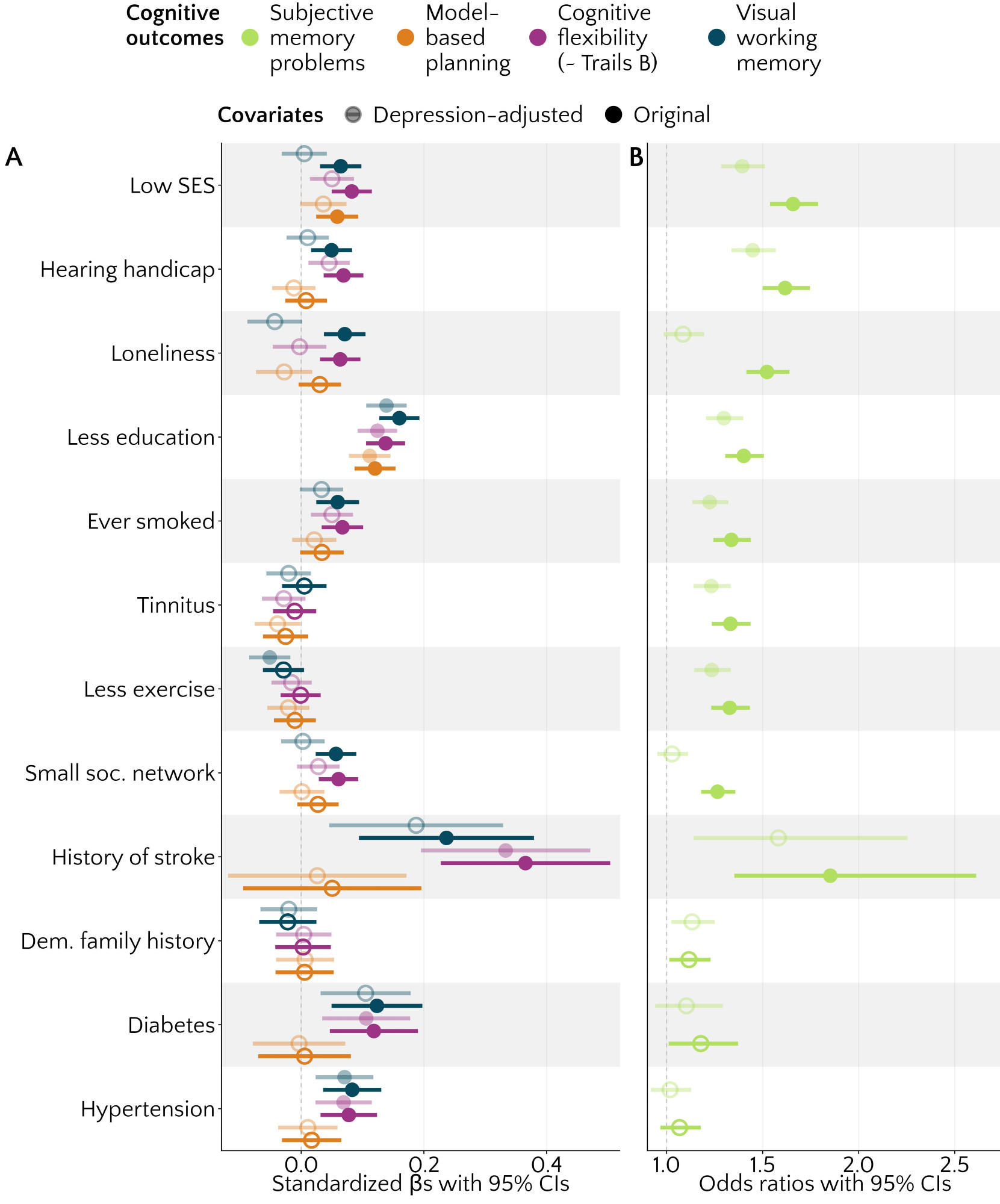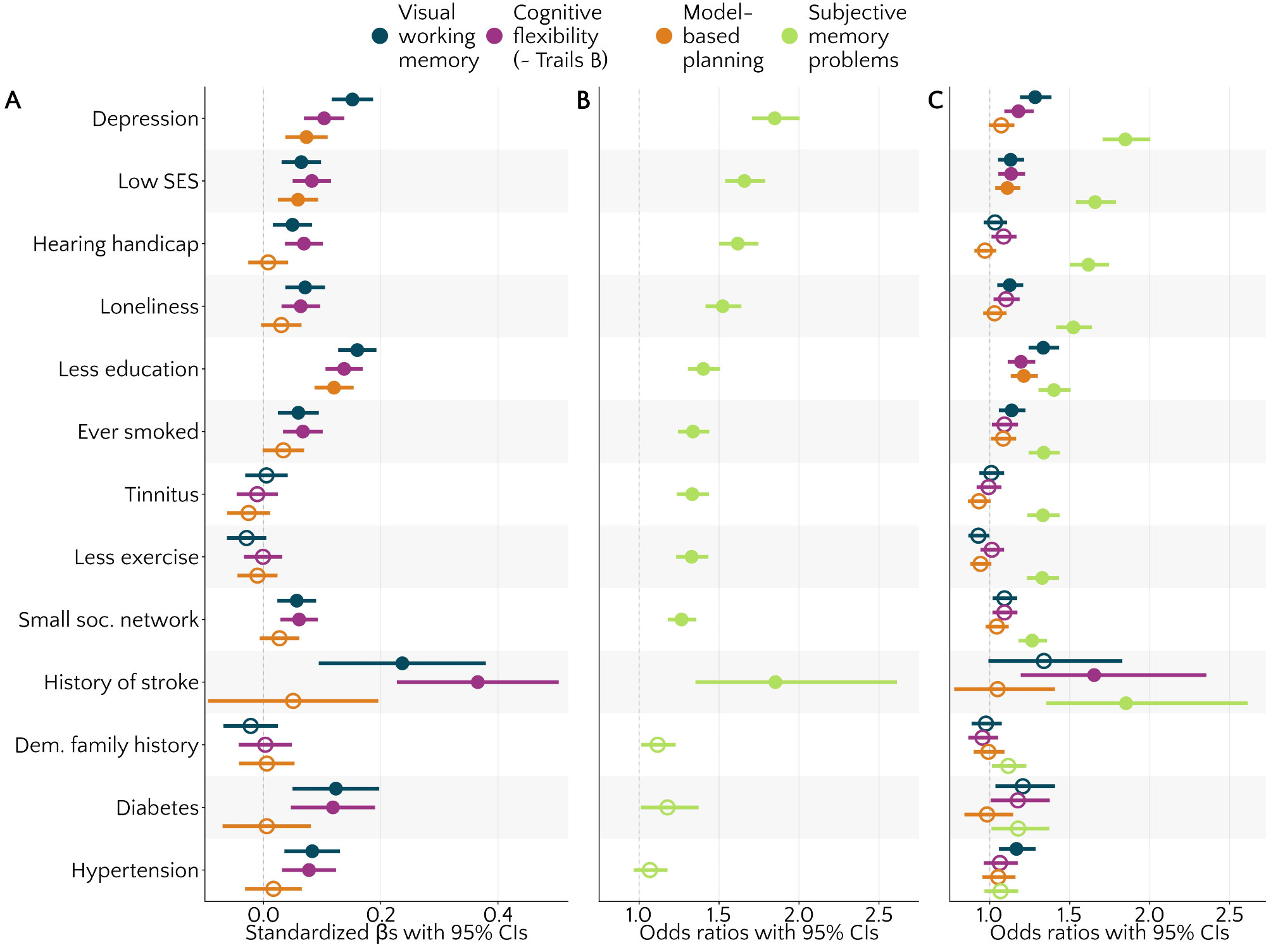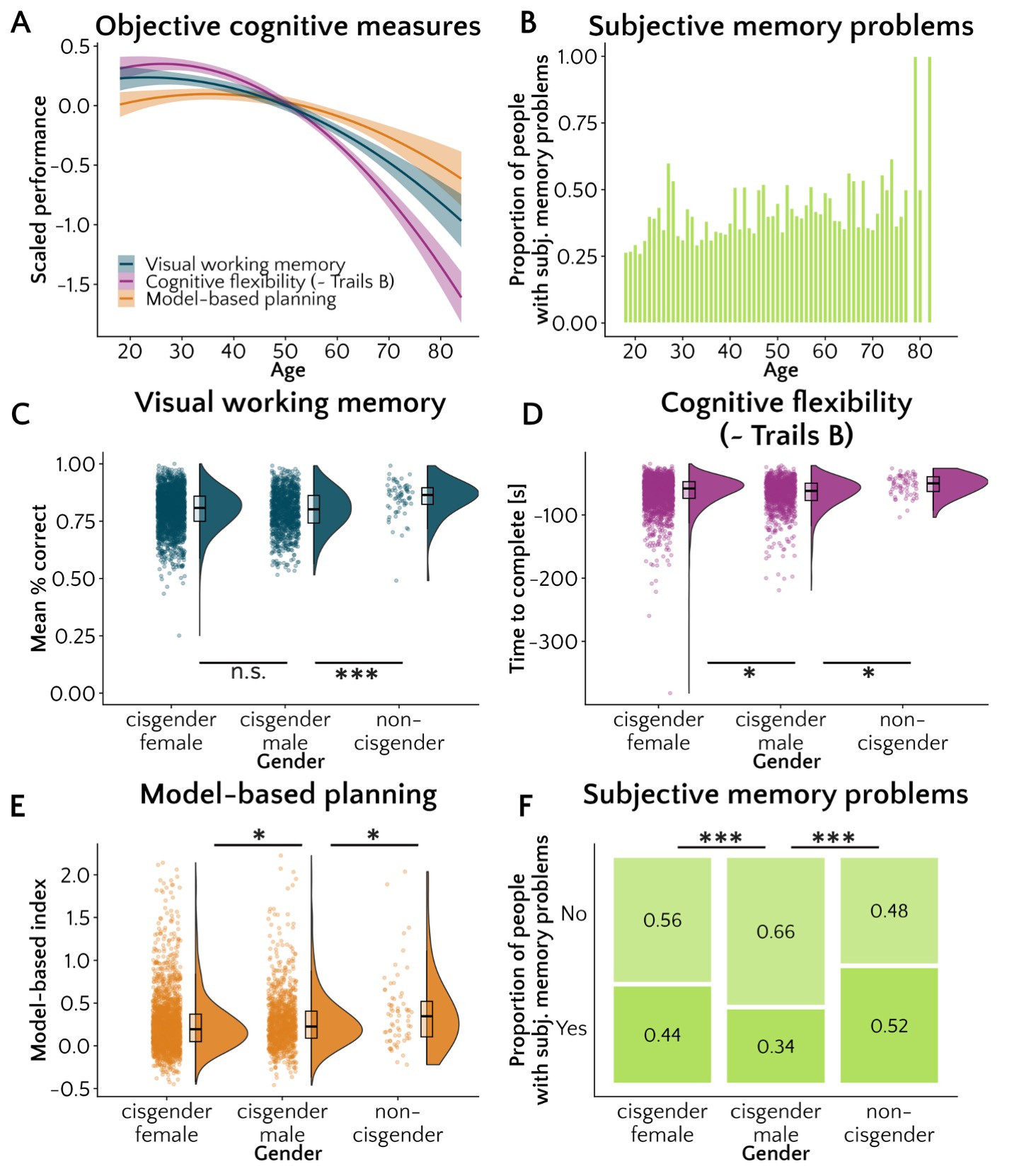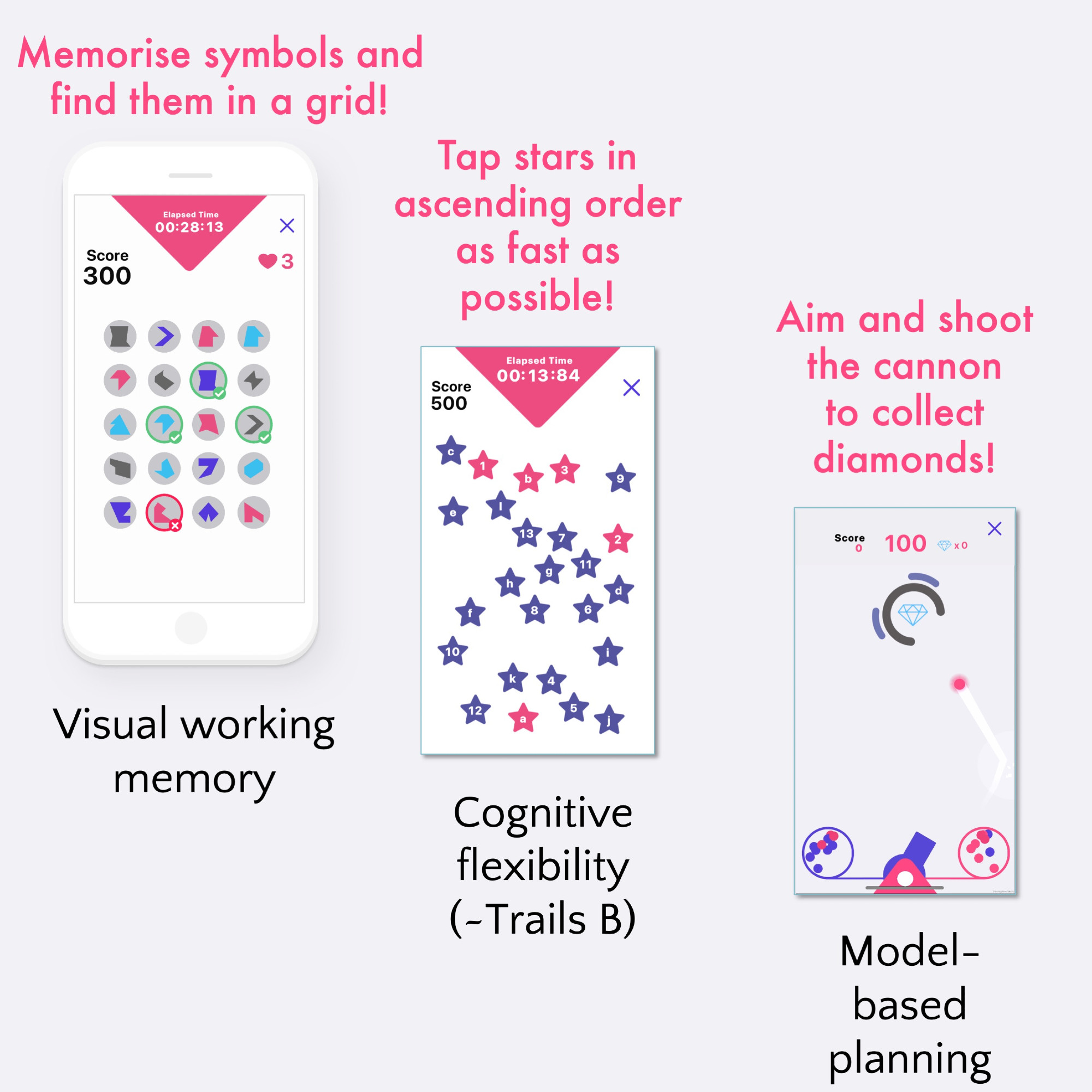
Huge thanks to my supervisor @clairegillan.bsky.social@glassybrain.bsky.social, Sol Fittialdi, Agustín Ibanez, Andrew Pringle, Eoghan Gallagher, Anna Hanlon, , Nathalie Claus, Cathal McCrory, Brian Lawlor, &Lorina Naci, our funder SFI, and our amazing Neureka participants! 8/8
Our findings suggest subjective cognition 💬 is more sensitive to self-report risk factors than objective cognition. Now which one should be priority in research and policy? Our study also highlights the potential of smartphones to detect & study earliest cognitive impairments. 7/8
These associations remained even after controlling for depression.👇 Age? Surprisingly, not a major player, as the associations were mostly consistent across lifespan and did not match the 'sensitive windows' proposed in the popular life-course model of dementia risk factors. 6/8

Depression, SES, hearing, loneliness, education, smoking, tinnitus, exercise, social network, stroke, diabetes, and hypertension were all linked to impairments in at least 1 measure. But when put on the same scale (C), SUBJECTIVE memory had the strongest link to most factors! 5/8

Let's look at cognition first: In line with previous studies, subjective and objective cognitive problems overlapped very little (r=.07–.16). Both types of cognition were worse in older participants. Women were more likely to have subjective, but not objective impairments! 4/8

We used the power of #citizenscience to gather cross-sectional data from 3,376(!) participants (ages 18–86, M=46) via @neurekaApp. We quantified the associations of 13 risk factors with both 1) subjective memory and 2) three objective (gamified! 👾) measures of executive function.

Specifically, we wondered if subjectively reported 💬 and objectively measured 🔍 cognitive problems differ in their links to modifiable risk factors for dementia. Studies show both types of cognition are sensitive to risk factors even in healthy adults, but direct comparisons were missing! 2/8
📢 Excited to share the first preprint of my PhD!🧠 doi.org/10.31234/osf... Do you feel you have memory problems? And would an objective test detect any? Both subjective & objective insights can help in early detection of cognitive decline. Here, we used the Neureka app📱 to study both! 1/8
Hi Bluesky folks! I'm looking for a good journal for a longer review on #Alzheimers#AcademicSky#episky
